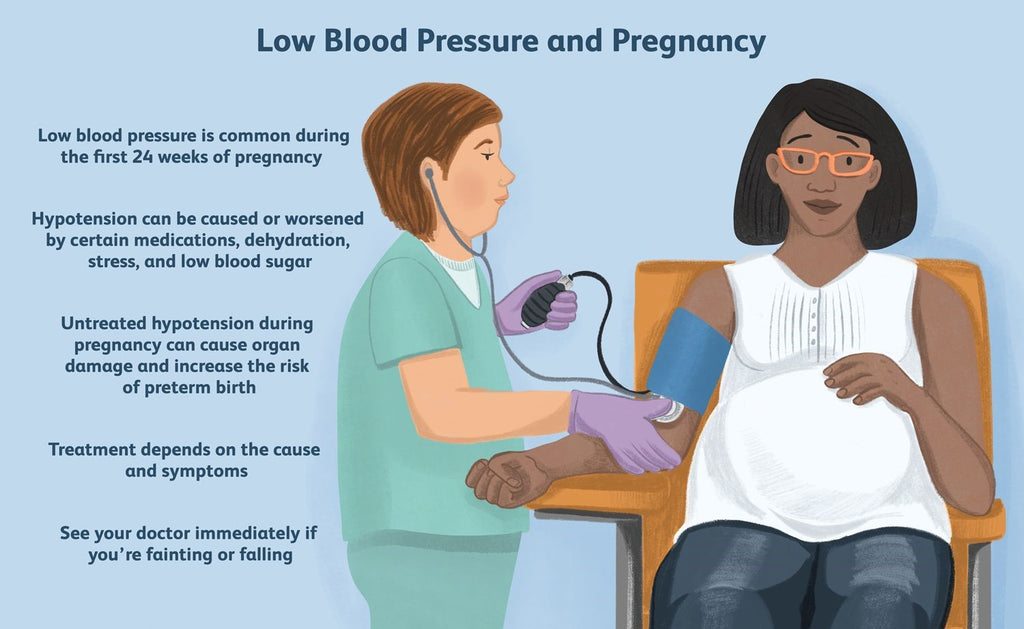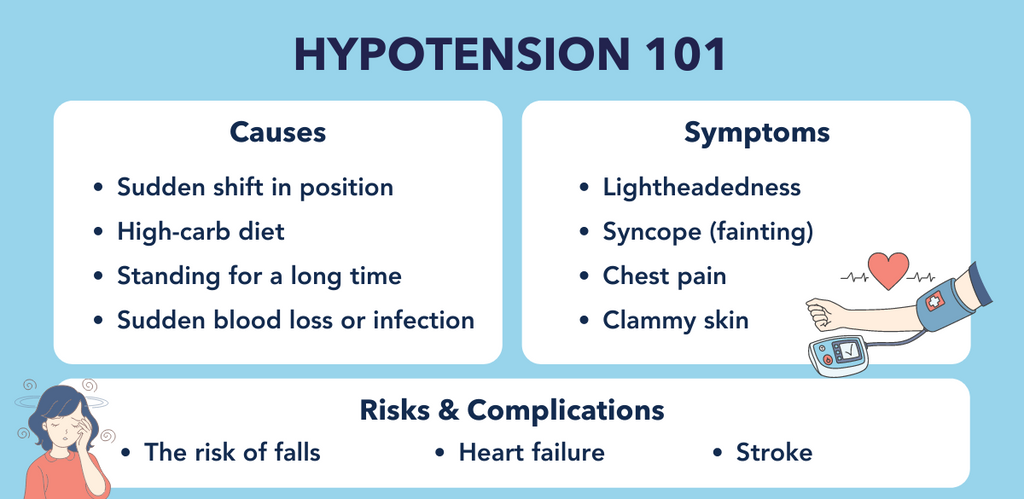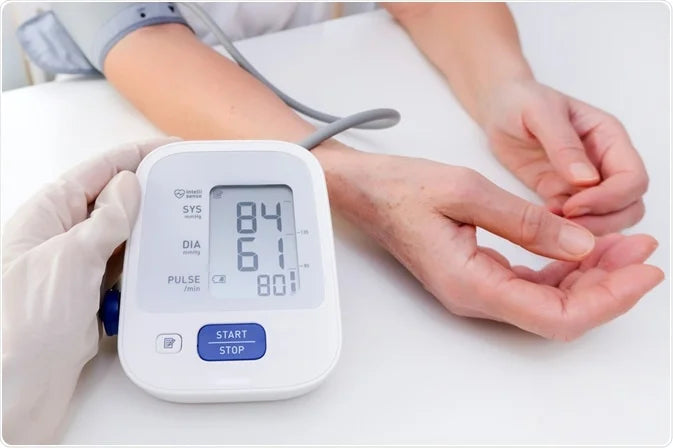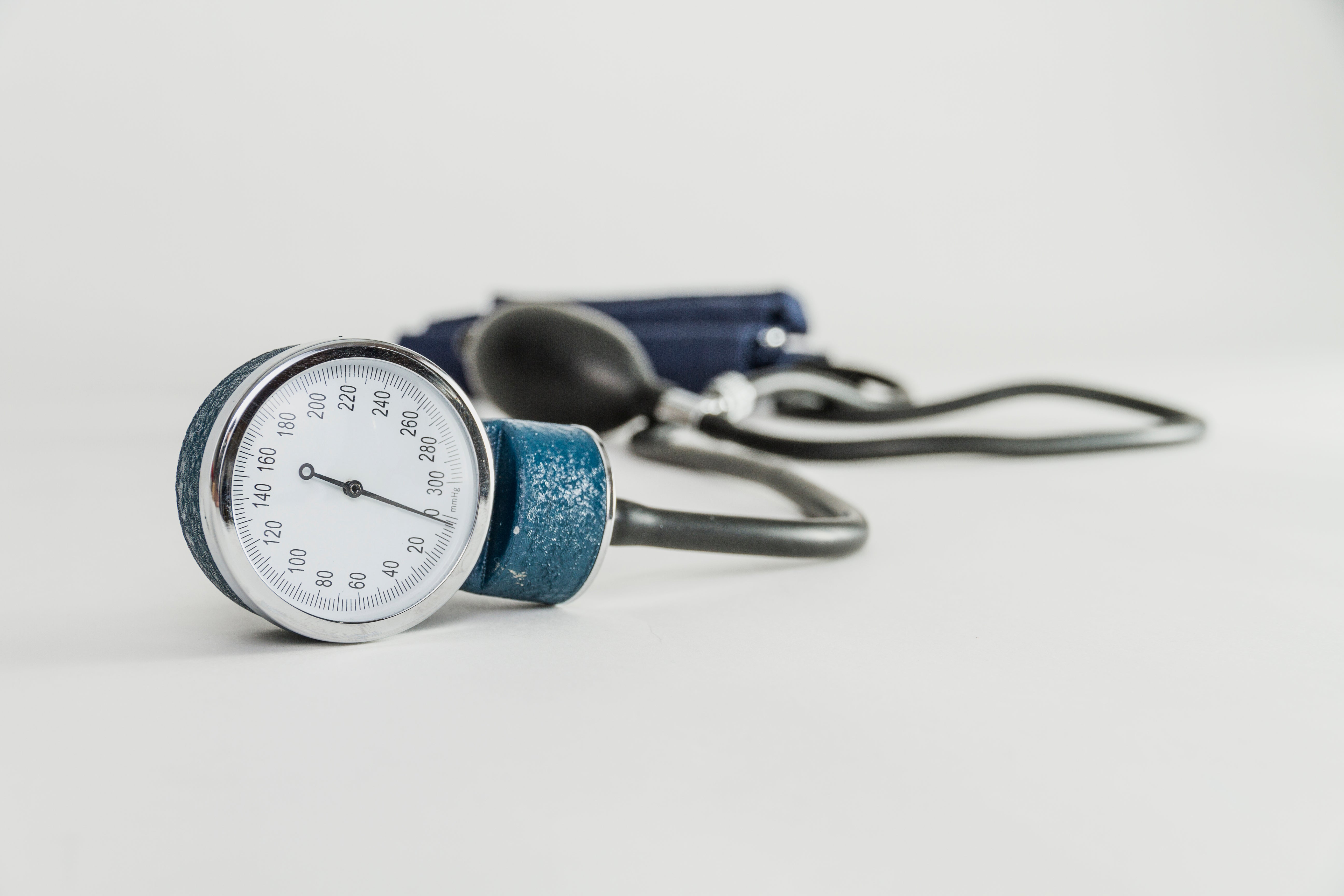Blood pressure is a crucial indicator of cardiovascular health, and most people are aware of the risks associated with high blood pressure, or hypertension. However, low blood pressure, or hypotension, is often overlooked as a potential health risk. While hypotension is less common than hypertension, it can still cause a range of symptoms and complications that can affect an individual's quality of life and long-term health.
What is Hypotension?
Hypotension is a condition characterized by low blood pressure, typically defined as a reading of 90/60 mm Hg or lower. Blood pressure measures the force of blood pushing against the walls of the arteries, and a lower reading indicates that the heart is not pumping blood effectively or that the arteries are dilated.

Hypotension can be classified as either acute or chronic, depending on the duration and severity of the symptoms. Acute hypotension is a sudden drop in blood pressure that can cause dizziness, fainting, or shock, and may be a medical emergency. Chronic hypotension, on the other hand, is a long-term condition that may not cause symptoms or be diagnosed until routine medical check-ups.
Risk Factors for Hypotension:
While hypotension can occur in anyone, certain factors may increase the risk of developing the condition. These include:
Age: As people age, their blood vessels become less elastic, and the heart may not pump as effectively, which can lead to hypotension.

Medications: Some medications, such as diuretics, beta-blockers, and blood pressure-lowering drugs, can cause hypotension as a side effect.
Medical conditions: Certain medical conditions, such as heart disease, diabetes, and Parkinson's disease, can increase the risk of hypotension.
Dehydration: Dehydration can cause blood volume to decrease, which can lead to hypotension.

Pregnancy: Hypotension is common in the early stages of pregnancy due to hormonal changes and may require medical attention.
Symptoms and Complications:

Hypotension may not cause symptoms in some individuals, but in others, it can lead to:
Dizziness or lightheadedness
Fainting or loss of consciousness
Fatigue or weakness
Blurred vision or difficulty concentrating
In severe cases, hypotension can lead to complications such as:
Shock: A life-threatening condition where the body's organs do not receive enough blood and oxygen.
Kidney failure: Hypotension can reduce blood flow to the kidneys, which can lead to kidney damage or failure.
Heart damage: Chronic hypotension can cause damage to the heart muscles and increase the risk of heart failure.
Stroke: Hypotension can increase the risk of stroke by reducing blood flow to the brain.
Treatment and Management:
The treatment for hypotension depends on the underlying cause and severity of the symptoms. In some cases, lifestyle changes such as increasing salt and fluid intake or standing up slowly can help manage hypotension. Other treatment options may include:
Medications: Certain medications, such as fludrocortisone and midodrine, can be prescribed to increase blood pressure.
Compression stockings: Compression stockings can help prevent blood from pooling in the legs and increase blood flow to the heart.
Intravenous fluids: In severe cases of hypotension, intravenous fluids may be administered to increase blood volume.
In conclusion, hypotension can be just as serious as hypertension, and should not be overlooked. It is important to be aware of the potential causes and risk factors for hypotension and to seek medical attention if you experience symptoms such as dizziness or fainting. Regular check-ups with your healthcare provider can also help to detect and manage hypotension. By taking steps to maintain healthy blood pressure, you can help reduce your risk of developing related health problems and improve your overall quality of life.

Remember, your heart is a vital organ and it deserves proper care and attention. Make healthy lifestyle choices, such as regular exercise, a balanced diet, and adequate hydration, to help maintain healthy blood pressure. By being proactive about your heart health, you can reduce your risk of both hypotension and hypertension and enjoy a longer, healthier life.
Thank you for reading, and I hope this article has been informative and helpful in raising awareness about the risks associated with hypotension.



Leave a comment
This site is protected by hCaptcha and the hCaptcha Privacy Policy and Terms of Service apply.